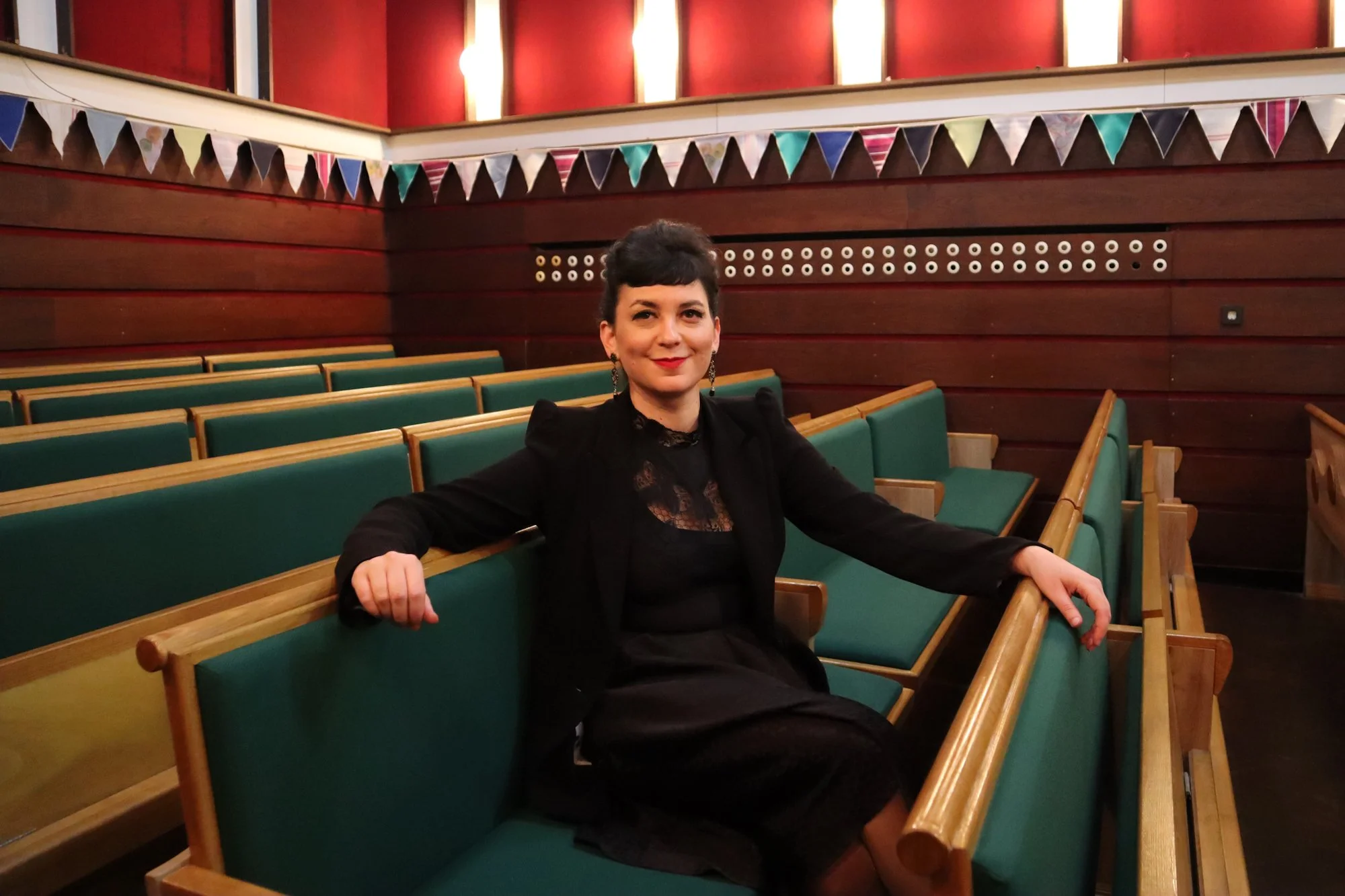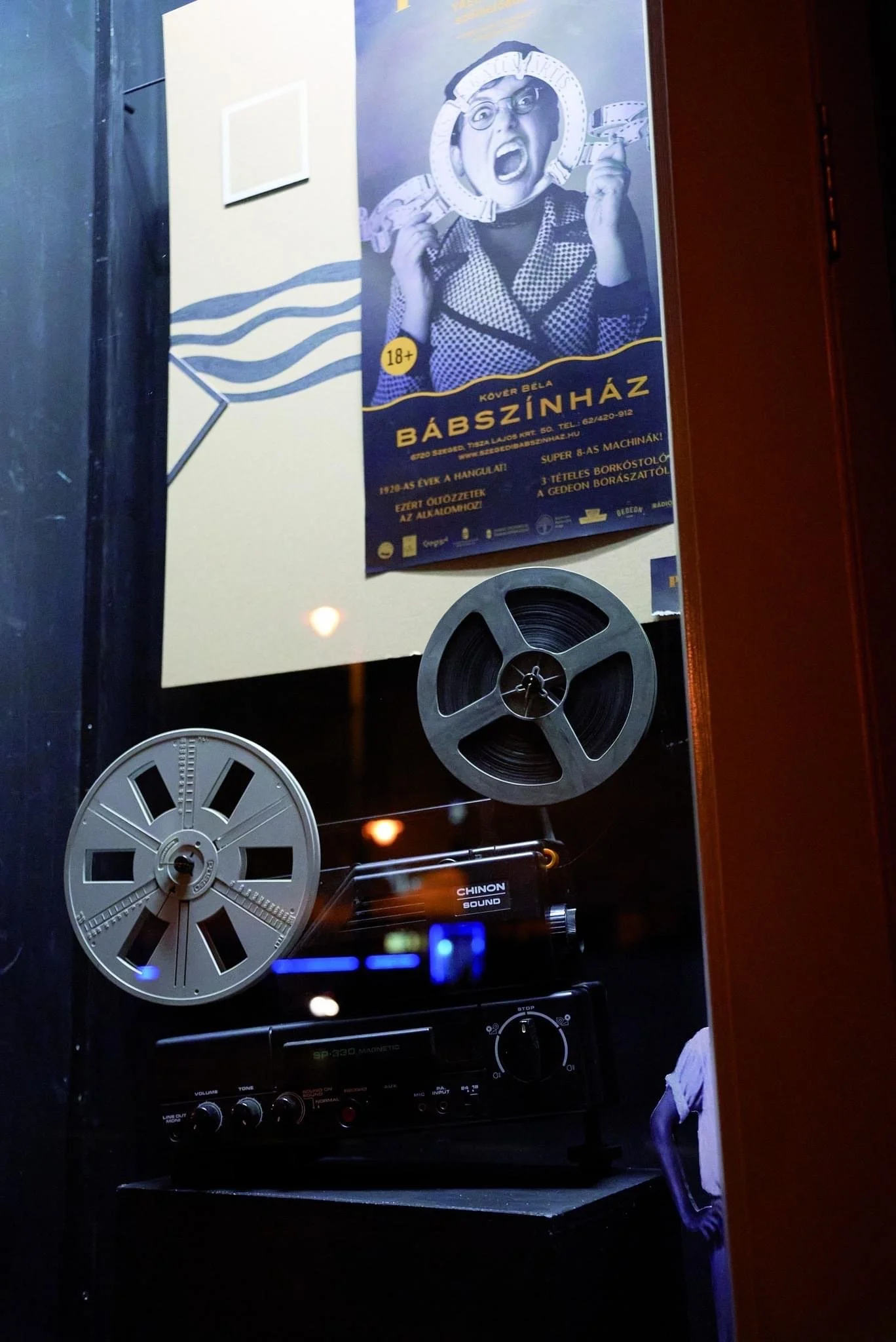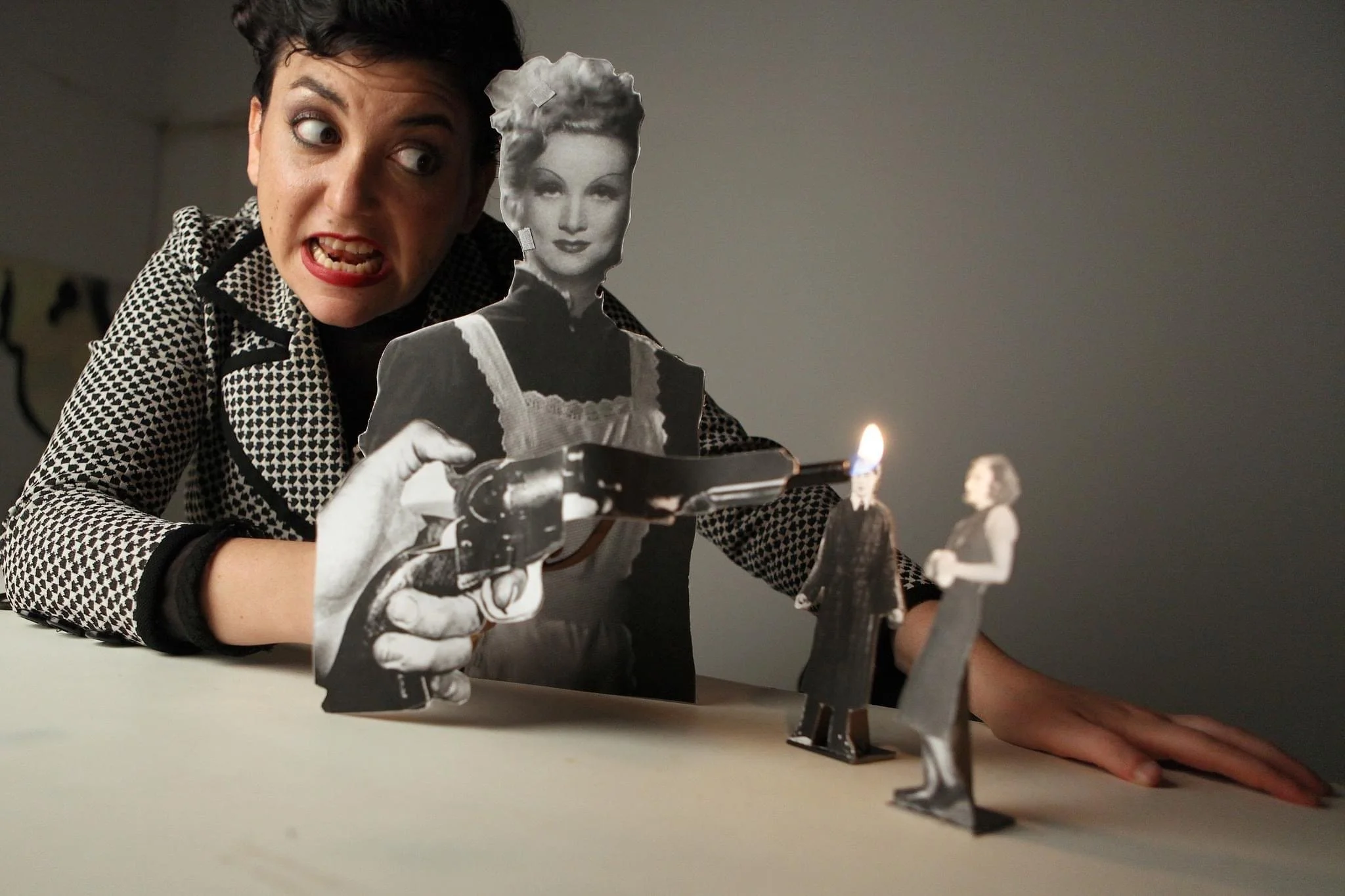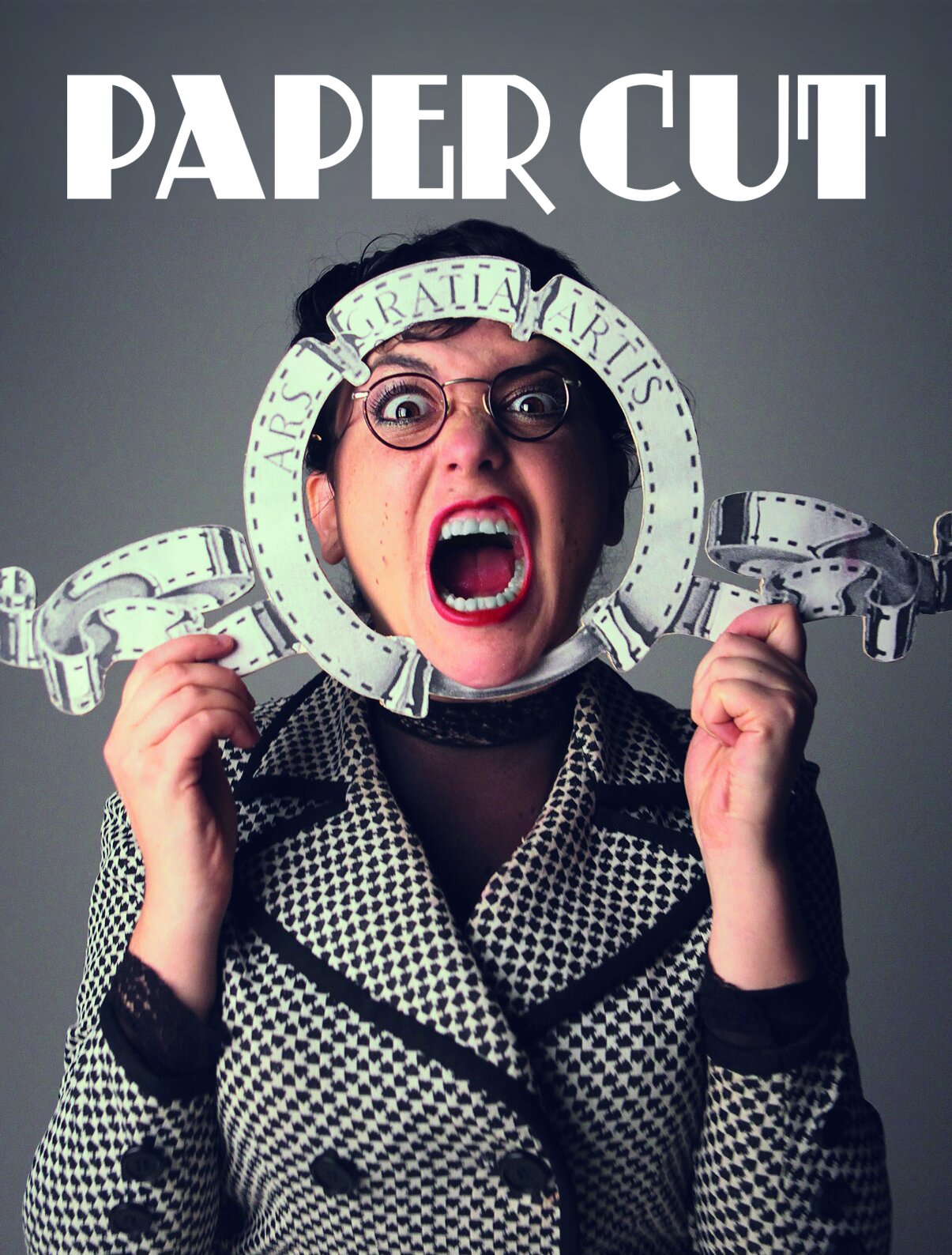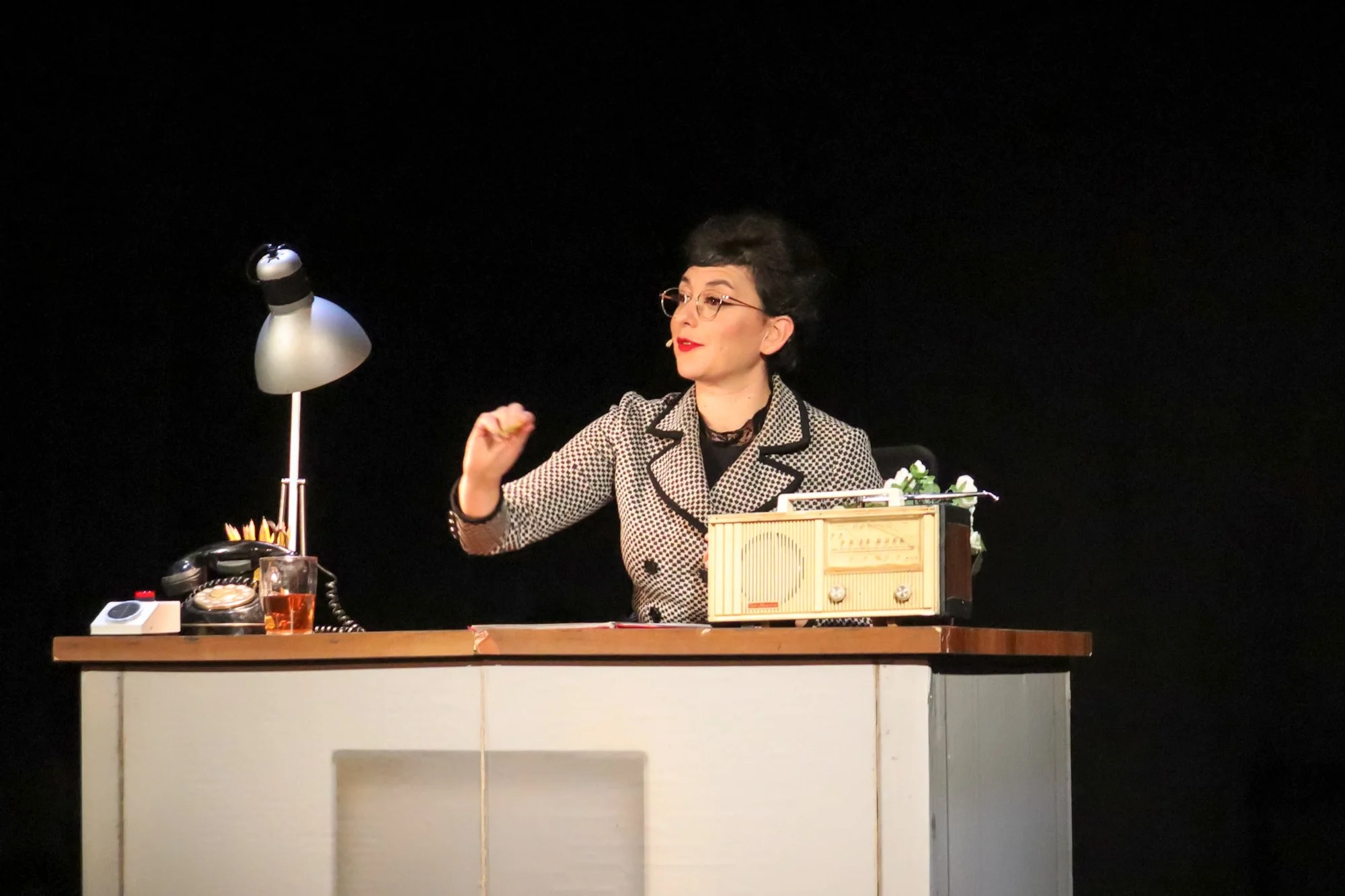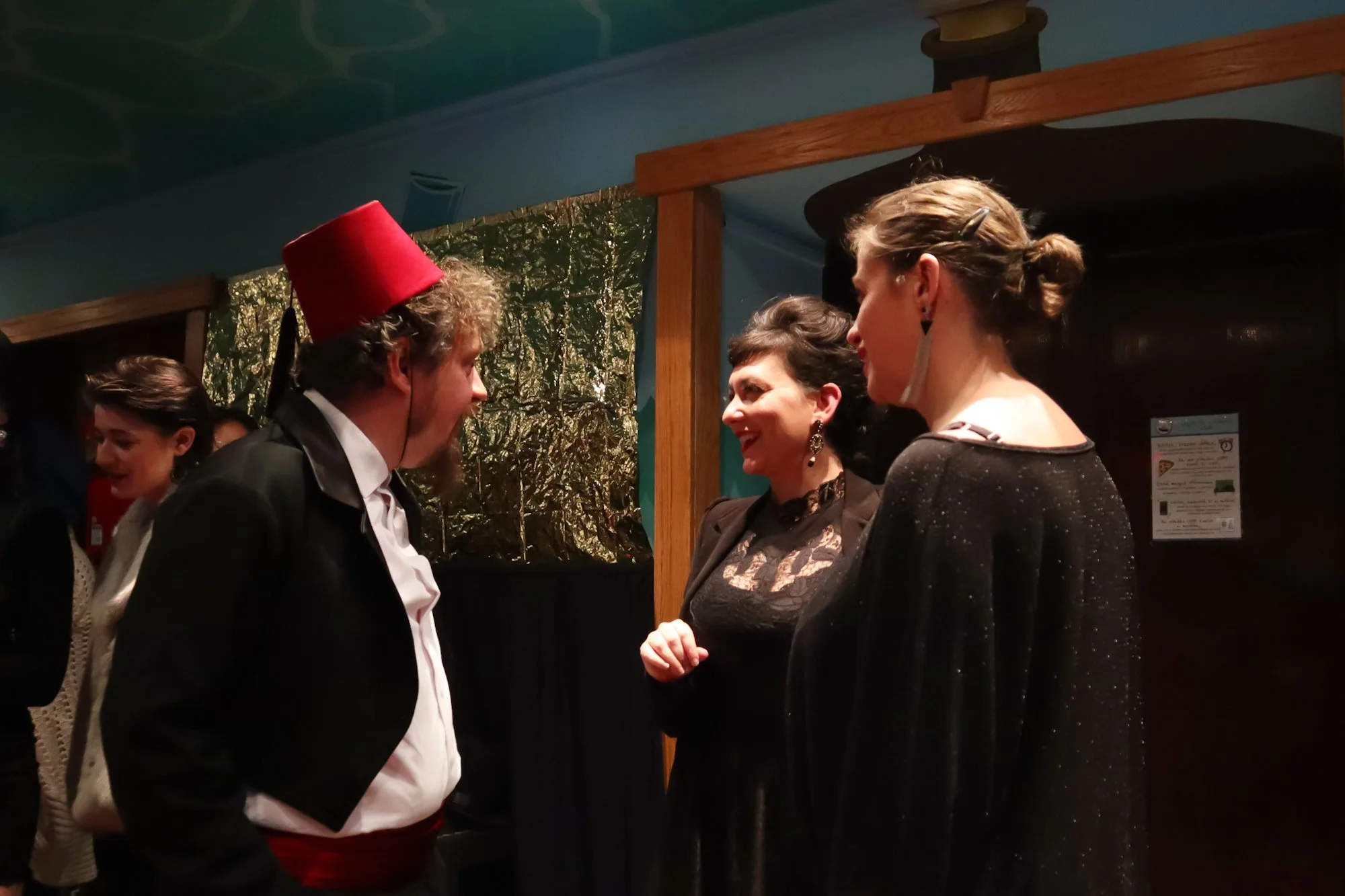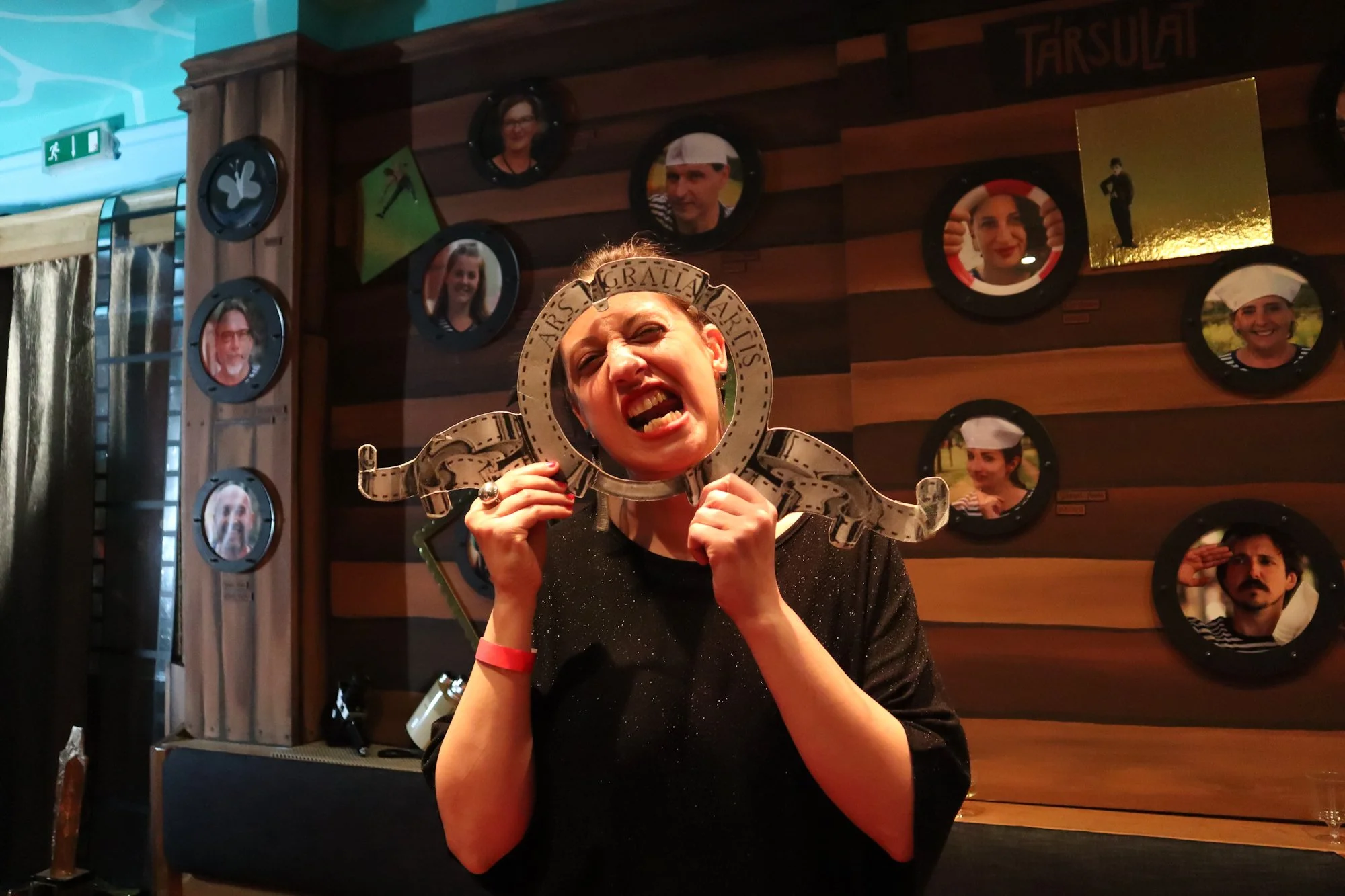Transforming lives through art and creation — an interview with Yael Rasooly
Director, actor, singer, and puppeteer Yael Rasooly returned to Hungary after 13 years and opened the 2023 Theater Olympics program series in three puppet theaters…
Yael Rasooly at Kövér Béla Puppet Theater Szeged on April 14, 2023. Photo by Szilvia Molnar / Szegedify.
Director, actor, singer, and puppeteer Yael Rasooly returned to Hungary after 13 years and opened the 2023 Theater Olympics program series in three puppet theaters — in Kecskemét, Szeged, and Békéscsaba — with her solo show Paper Cut. Yael shared her thoughts with us after a full house show at the Kövér Béla Puppet Theater in Szeged.
First and foremost, thank you for this extraordinary experience. The way you personalized the show for the audience, so that we could all be part of it, was a lot of fun! But Paper Cut is not just a fun show, it carries a serious meaning and message. Can you share your thoughts about this?
I’m involving the audience because I’d like to take them on a voyage. This is an element of the show that evolved with time. You know, this show taught me a lot about theater, a lot about life, and a lot about myself also. It’s about heartbreak, it’s about illusion, awakening from illusion with all the pain and necessity of that, but it’s also about falling in love with yourself. I mean that you are enough, period. You are magnificent the way you are, and that you’re allowed to dream, and that in fact you MUST dream, and believe, and keep believing. And stay with an open heart. I mean the heart opens and closes, and that is normal, and sometimes it is a form of protection that is crucial. But daring to open your heart again is an act of resilience, connection, and hope. I don’t only mean in the “romantic love” sense, but in the widest sense, and in the daily interaction with living.
It’s hard because life is rough. We are in constant threat and danger, and we come from complicated pasts and families. Most people didn’t grow up in a place where they were seen and supported to be who they are, and where someone nurtured them in a loving way. So a lot of us deal with a lot of demons in our lives and a lot of dark thoughts, or critical thoughts, just criticizing ourselves all the time.
I think we’re constantly looking for unconditional love and I have come to the conclusion that I have to find it inside me. Life teaches us lessons, like letting go of the belief I exist or I am worthy just because someone else loves me. My job is to see myself with compassion and to hold myself, and accept myself. In all situations, the whole complex package. Especially as I come from a place with a lot of rejection and judgment, a language that I internalized as we do — so my training is to reinvent another language. And then to practice it every day.
The night featuring Yael Rasooly’s Paper Cut show at the puppet theater in Szeged recalled the glamorous era of the 20’s and 30’s. Photos by Dániel Szügyi
I have the feeling that your personal experiences have a very strong influence on your art.
OH Yes. I’ve had a very colorful — well, colorful is a gentle word to use — so a very colorful, eventful, complicated, and beautiful life. And I’ve lived through a lot of violence in my childhood, in my adolescence, as an adult, as a girl and as a woman, and also as a person coming from Israel. I find that art is the way to metamorphosize, to transform the pain. And also when you share it other people can be like “Oh, I know this place exactly, this is also my story” or “Oh, I was this woman / I am this man / I am this person”.
This is the beauty of this discipline… I mean sometimes you have to come through life by getting thrown around, and then you learn that you have to choose the light every day. I don’t often talk about the real story of this show or how I made it, but this show, like many of my shows, helped and saved me in a way to have a voice and to heal from loss, trauma, and fear. It helped me to go out in the world and meet people and accept experiences — both pleasant and unpleasant. Staying in motion and moving forward.
What about the other shows in your repertoire? Do they carry a similar meaning or message as Paper Cut?
My shows are very different. Mostly, people come out of Paper Cut in a better mood than they came in and with a lot of music in their head, smiling and inspired, and I love this direction also. But I have other shows too, darker, dealing with harsher places in ourselves, in society, and I think there is a place for that also. What I wish to convey to the audience ultimately is that you’re not alone, someone else sees you, I see you — I suppose this is a message that characterizes all of my work.
I think most of the things we live through cannot be described with words, like some emotions or some challenges, and I think that visual theater and puppet theater can talk a lot about the many different voices we have in ourselves. We put the voices of others in ourselves all the time, and in puppetry, we can show it in action. Like in Paper Cut, it’s one character that I portray but at the same time I bring to life all the many characters of the story as they are all me and they are all inside my head.
Paper Cut promo image via Yael Rasooly
Most of the voices we have in our head are mostly about the past or the future, and worries, and other people’s voices… I think that’s our role in life to connect to our own voice.
It’s also very important to talk about beginnings. When I began I was very insecure, I was very afraid, and I had to prove myself to survive. I was brought up with a lot of pressure to excel, to be “the best”, to succeed, and I think that this is really hurtful to yourself, this pressure. I think we have to allow ourselves to fail. I’ve made shows that have been very successful and other shows that have been unsuccessful, but it’s important to say it because we learn from our failures and we have to allow ourselves also these moments and these projects that don’t work.
Every show is a new story and it’s a new challenge, it’s a new adventure. Making Paper Cut was a long process but really I made it in 6 months, and if I want to be really honest, in reality, I made it in two weeks. Then I kept working on it for years and years while touring it. I find that in the first 1-2 years of touring, you just get to know and discover your show.
In your talk after the show, you told the audience that Paper Cut evolved constantly over all these years. Is it always such a long process? And is it worth it?
Yes, things take time. We, humans, want immediate satisfaction, but the process takes time. And some shows have a chance to survive and others do not — that’s also fate. Sometimes you work on a show for years, for me, it was a show called “Bon Voyage and Other Lies”, a production so crazy both to direct and perform, that in comparison it makes PAPER CUT seem so easy and in slow motion. I worked on it for years, and it only played a few times for reasons really not in my control.
It’s always a risk. But life is a risk, and living is a risk. Having children is a risk, not having children is a risk, or getting out of the house. I have performed in over 30 countries, creating and leading intense projects with international teams, mentoring so many other artists with their own creations — a long career full of challenges and victories that began when I was still a child. Yet, for some people like myself, the hardest thing in life is simply getting out of bed in the morning.
Going back to the inner voices and demons: theater allows me to put them out there and say “Look, this is it!”. And when you start to put things out there then they can begin to change. This is why I think we should also talk about political, sexual, or any kind of violence, and silencing, which is also a type of violence, and dealing with pain and post-trauma and healing… I think we should be talking about all of these things and putting them in the light because then they can change. And they must.
My next show is called “CHANTE!” (SING!), and the creation period on this show is the longest I ever had, it’s already 3-4 years and I still have a long road ahead. I already made several versions of it, the previous ones I censored myself because of fear. Self-censoring in your own art is really a hard one to face. This show is based on a personal story and one that takes a lot of courage to bring out to the world.
Recently, after I almost gave up, I found a new way and perspective to tell this story and I am developing that now with an incredible team. I still have many fears and doubts, but I believe I have found a key now that permits me to find the distance I need to feel safe, to tell this story. Seems there are no shortcuts. Luckily I know already that the process is more meaningful than the “result”. But I definitely can’t wait for the moment the lights will go up and I will finally perform this show for an audience!
So you believe that art has the power to change lives?
From personal experience, my response would be a strong YES. It always comes to the battle of light and darkness and I always want to show this battle and the power of imagination, the power of art… like my next show is the real story of how Edith Piaf saved my life. One very dangerous night in my life singing her songs saved me physically. Although it's a voyage through incredible darkness and injustice, in the end, I wanted this show to be about choosing life and love, and never giving up. I think this is the biggest lesson, to never give up, and that you matter, your voice and your truth matter.
I’m a great believer of vulnerability. We are living in a very strange society where you have to prove that you are functioning, that you are able, that you have it under control. God forbid people find out you are in a crisis, or dealing with depression, anxiety, etc. And we all know that the truth is not what we post on Facebook, not (only) these smiley images. It’s complicated. I think the theatre is also a place to celebrate vulnerability.
You’ve been to Hungary and played Paper Cut in Pécs 13 years ago. How does it feel to be back?
Yes, it was the second tour of this show but it was the first time that I performed Paper Cut for an audience where English wasn’t the first language. It showed me that this show transcends language and that I can play it anywhere. Regarding Hungary, now I feel like “Where was I for 13 years?” and “Really, I missed this Hungarian audience for all these years?”. You guys are so welcoming and so reactive. It’s such a pleasure, I really enjoyed both performances, this one today and the one I had yesterday. I know things are not easy here either and it’s always really surprising to me to see how open the people are. Looks like there is a strong wish here, even with all you face and maybe because of it, to live openly and creatively. And a great appreciation for the expression of the individual experience.
Is this your first time performing at the Theater Olympics? What does it mean to you to take part in the Olympics?
Yes, it’s my very first time. Honestly, it’s ending too fast. It’s an honor to be at this festival. I know some of the other works and the other artists performing here, and I really wish I had more time to see those performances. I love that the Theater Olympics exists and that it is organized in other cities too, not only in Budapest.
Now I’ve been to three Hungarian puppet theatres in my life, in Pécs, yesterday in Kecskemét, and now here in Szeged, and I’m amazed by this collective of people. Each place has its own character but we’ve really felt at home in every place we’ve been to, and I feel like I can be myself here — this is something I wasn’t expecting. There is a connection that makes me feel that these are my brothers and sisters of the theater and the puppet world. I think we puppet people are special people, who can do a lot of diverse things and have this energy of inventiveness. In the puppet world, everyone is different, and you cannot compare anything, competition is especially useless and absurd in this field and I love that.
Did you choose to perform Paper Cut, or did the organizers choose this particular show from your repertoire?
The organizers chose and invited Paper Cut for the Theater Olympics, and for me, it’s really touching that they were remembering this show after 13 years.
I’m looking forward to the workshop even more than to the shows. Tomorrow I have another show in Békéscsaba, and after that, I will hold a workshop for 21 participants, 7 from each of the puppet theaters where I play throughout the Olympics. I teach a lot all over the world and I’m really looking forward to discovering artists here.
Have you ever reached the point of burning out?
It's a huge challenge to find balance in this industry, just like many others I suppose. It often feels like you either have too little work or way too much. And the pressure can be enormous, especially during creation. I can give an example: 7 or 8 years ago I reached a point where I made a show and I suffered so much from making it. There were a lot of problems and I was not in a good place, and it didn’t work well with the partners, and it was like one big nightmare. It got so bad I was really thinking that I should leave the theater and do something else. My mind rationalized all the reasons to do this. Luckily there was this other voice saying “No, you’re not giving up, you have to find another way to work, to create”.
That was where I learned to train myself to insist on pleasure, to be gentle and supportive of myself and the process, and not to be success-oriented, to allow myself to fail, to try, and to enjoy. We don’t always succeed, there is stress, and it’s always against the odds and there’s always never enough money/conditions etc. But I really do believe today I am in the right profession for me and very very fortunate that I can practice my art.
Every show is a gift in my life and has to be a gift in other people’s lives and it has to be something that ultimately elevates us as people, as collaborators, and this really helped me to continue working. Even when I have a solo show, it’s never really solo, there’s always a collaboration, and a lot of people are involved in all aspects of production, and one of the biggest lessons is how to be a good partner for other people to create with. And you definitely have to train on being a good leader, learning to listen and give space, prioritizing the needs of your team before the artwork, and knowing your own boundaries.
One last question. Where do you live now?
At the moment, and for a long time already, I don’t live in a specific place. I’m working on a new creation in Norway, Holland, France, and Israel and I’m traveling and touring, performing, and teaching in many different places. I’m in constant movement. Not by choice and by choice at the same time. Yes, it can be exhausting and demanding. But let’s face it. For the most part, I absolutely love it.
Gallery photos: Szilvia Molnar / Szegedify
